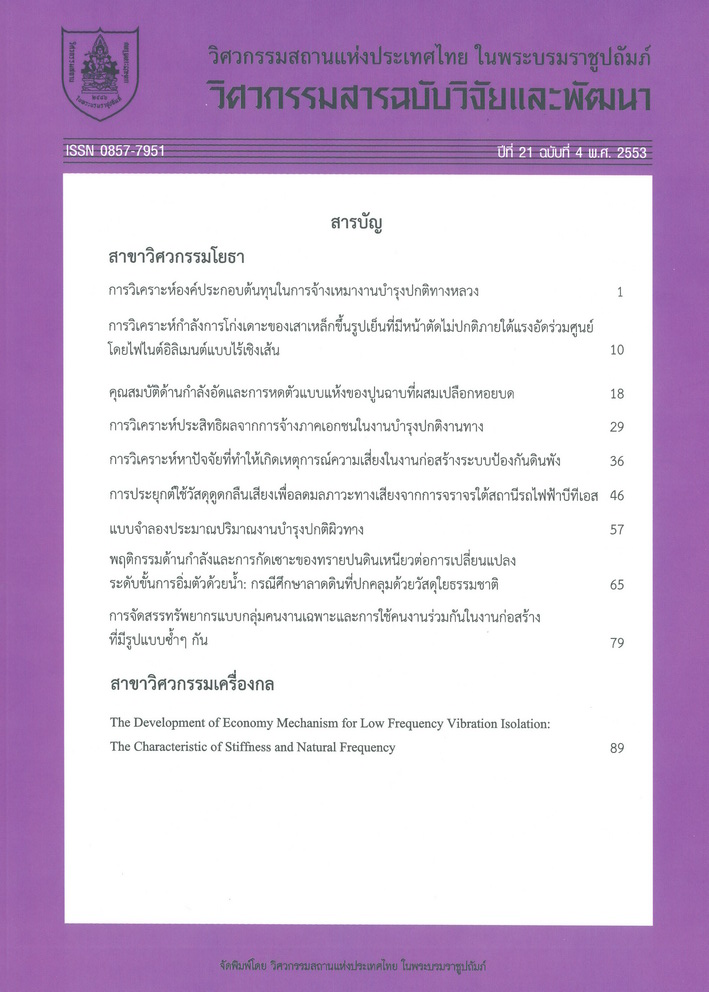การจัดสรรทรัพยากรแบบกลุ่มคนงานเฉพาะและการใช้คนงานร่วมกันในงานก่อสร้างที่มีรูปแบบซ้ำ ๆ กัน
Main Article Content
Abstract
In repetitive construction, scheduling is one of the most crucial steps that helps contractors manage and control a project efficiently. There are various methods designed for scheduling repetitive construction projects including: Line of Balance (LOB), Linear Scheduling Method (LSM), and Repetitive Scheduling Method (RSM). These methods assume that each activity has one working team especially assigned to it so called Dedicated Resource Assignment. Such methods ensure work continuity to the work force. Scheduling using Critical Path Method (CPM) can be applied to both Dedicated Resource Assignment and Pooled Resource Assignment, where all resources can be shared among different activities. This paper presents the effects of unbalanced production rates, when adopting these two different resource assignments mentioned earlier on repetitive construction projects, on project duration, workers’ waiting time, and work-in-process. The result shows that work schedule using a method designed for repetitive construction contains zero waiting time but may result in excessive work-in-process. Early start schedule with Dedicated Resource Assignment may cause work interruption but ensure minimal work in process. Without the consideration of learning effect, Pooled Resource Assignment with Early Start Schedule provides shorter project duration and higher production rates.
Article Details
The published articles are copyright of the Engineering Journal of Research and Development, The Engineering Institute of Thailand Under H.M. The King's Patronage (EIT).


